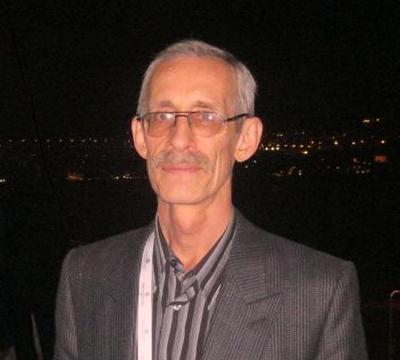The fallout from the July 15 failed coup continues. As many as 260 people were killed and 1,400 people wounded. Arrested and suspended include:
* a third of Turkey's 360 generals
* 257 officials at the prime minister's office, including Erdogan's aide de camp
* 50,000 soldiers, police, judges, civil servants and teachers
* 500 people at the Religious Affairs Directorate,
Academics were banned from travelling abroad to prevent the risk of alleged coup plotters in universities from fleeing.
The sense of disappointment, dissatisfaction, distrust of Erdogan has continued to grow since his decision to involve Turkey in the uprising in Syria in 2012, breeding and opening the doors to terrorists and refugees. The mass arrests and firings attest to the broad dissatisfaction.
Erdogan's foreign-policy mistakes are at the heart of the crisis. He burned one bridge after another--Israel, Syria, Russia, the Kurds, the West. Just before the coup, he was finally realizing the failure of his moves, the need to staunch the flow of blood, refugees and hard feelings all around, but too little, too late. The coup was a disaster waiting to happen, despite Erdogan's crack-down on the military over the past decade.
Erdogan has done much house-cleaning since coming to power in 2003, working to make Turkey immune to its Ataturk tradition of military rule. He purged the officer class following a mass trial of alleged conspirators in what was dubbed the Ergenekon terrorist organization, a spin-off of the CIA's Operation Gladio. He relied on Gulenists in the judiciary, not a wise move.
Over 500 people were arrested by 2011, most since acquitted, with many judicial documents exposed as fake, though Ergenekon and Gladio are not. The dubious Ergenekon investigation, and corruption investigations, also spearheaded by Gulenists, targeting Erdogan's son Bilal, led to a crackdown against the Gulenist in 2013. The gloves were off, and Gulenists in the government had good cause to join with others disaffected with Erdogan.
But the "deep state" behind the coup is not just remnants of Ergenekon along with Erdogan's Gulenist rivals. Labor Minister Suleyman Soylu told Haberturk TV, "The US is behind the coup attempt. A few journals that are published there have been conducting activities for several months. For many months we have sent requests to the US concerning Fethullah Gulen. The US must extradite him."
The journals Soylu was referring to are the American Enterprise Institute website, where "Could there be a coup in Turkey?" by Michael Rubin, appeared in March comparing Erdogan's fate to that of the overthrown Egyptian President Morsi. The other is the Washington Post, where an oped in March by former US ambassador to Turkey Eric Edelman called for Erdogan to "reform or resign."
Could the likes of Rubin and Edelman even be inciting allies-of-convenience ISIL to perpetrate terrorist bombings in Istanbul and Ankara, to give the restive military a convenient pretext to carry out a coup? Is the coup a neocon use of "soft power" to install a more amenable leader in Turkey?
What do you think is the reason for early suppression of the coup? Why was the coup repelled immediately?
Fortunately for Erdogan, unlike in Egypt, the army was no longer the monolith it was in Kemalist days, headed by a ruthless general eager to crush the fledgling democracy. And social media played a decisive role in mobilizing the broad public within minutes, to get people to the streets. "There is no power higher than the power of the people," exhorted the president on national TV, as his followers fought the mutineers at the barricades. Turkey's version of the social media fueled its very own "Arab Spring".
What consequences, positive or negative, does the losing coup have for the future of Turkey, Erdogan's government and the Army itself?
The future of Turkey still lies in Erdogan's hands after 15 years in control, but it's not a happy future. Looking back, the turning point in an already chaotic international order is 2011 -- the original Arab Spring. The charismatic Erdogan, up to that point, looked like the new face of the Muslim world, smart, savvy, bristling against the empire (both US and Israeli), trying to make peace with Turkey's bugaboo, the Kurds and their party, the PKK.
But, whether through hubris or bungling, these gestures collapsed. His "Zero Problems" policy with neighbours became anything but, leaving Turkey surrounded not by 'friends' but by enemies.
He abandoned first Muamar Gaddafi in Libya in 2011, and then his 'friend' Bashar Assad in 2012. Libya became a failed state, a haven for terrorists. Assad was pushed to use all his military strength against a motley gang of al-Qaeda clones and naive westernizers, to prevent a similar fate for Syria.
But Erdogan bet on the wrong horse. Assad had refused to take his 'friend' Erdogan's advice to dismantle the Syrian state and hand over power to the opposition, dominated increasingly by al-Qaeda groups, now led by something that calls itself ISIL (Islamic State in the Levant), but is neither Islamic nor a state. Assad refused to trust the West, which had held him in their sights from the start.
(Note: You can view every article as one long page if you sign up as an Advocate Member, or higher).





